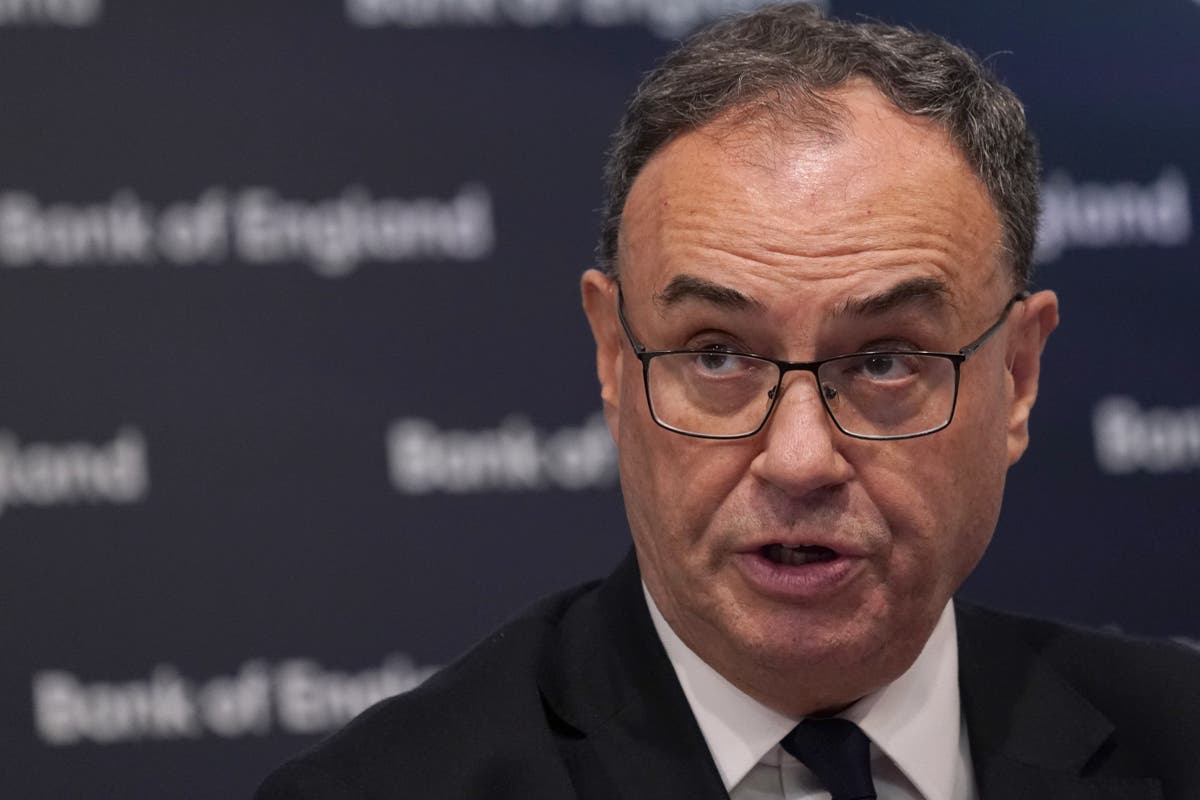Your support helps us to tell the story
From reproductive rights to climate change to Big Tech, The Independent is on the ground when the story is developing. Whether it’s investigating the financials of Elon Musk’s pro-Trump PAC or producing our latest documentary, ‘The A Word’, which shines a light on the American women fighting for reproductive rights, we know how important it is to parse out the facts from the messaging.
At such a critical moment in US history, we need reporters on the ground. Your donation allows us to keep sending journalists to speak to both sides of the story.
The Independent is trusted by Americans across the entire political spectrum. And unlike many other quality news outlets, we choose not to lock Americans out of our reporting and analysis with paywalls. We believe quality journalism should be available to everyone, paid for by those who can afford it.
Your support makes all the difference.
The governor of the Bank of England has said retailers were “right” to warn of potential job cuts as a result of tax rises announced in the Budget last month.
Andrew Bailey’s statement comes as retailers turn up the heat in their efforts to get chancellor Rachel Reeves to water down her Budget measures.
Last month she announced that employers’ national insurance payments would increase from 13.8 per cent to 15 per cent whilst lowering the threshold at which they would be paid from £9,000 to £5,000.
This was seen as hitting industries hardest that employed large numbers of minimum-wage workers, like shops and pubs.
Referring to a letter by a retail lobby group, Mr Bailey said: “I saw the BRC’s (British Retail Consortium’s) letter and I think they’re right to say, I think there is a risk here that the reduction in employment could be more. Yes, I think that’s a risk.”
Speaking to the Treasury Select Committee of MPs on Tuesday, Mr Bailey said that firms would feel more pressure on margins from the tax rises in the short term, before the effect eases.
He said: “Probably, initially, there will be more pressure on firms’ margins because it takes them longer to adjust and then they’ll probably rebuild those profit margins over time. I would expect that.”
In a wide-ranging meeting, Mr Bailey also called for an “active dialogue” with the US amid speculation that Donald Trump will impose trade tariffs on other countries.
The President-elect has said that he would initiate a levy of 20 per cent on most good, rising to 60 per cent for goods from China.
Research from the Centre for Economics and Business Research released this week suggested Mr Trump’s tariffs would hit the UK economy to the tune of £20bn during his four years as president.
The US is the UK’s second-biggest trading partner after the EU. Britain also sent £188.2bn of exports to the US in the 12 months to the end of June, about a third of which were goods and the rest services.
The US is a big market for UK cars, aviation parts such as jet engines, and medicine, all of which could be hit.
Mr Bailey said: “I would be very clear, fragmenting the world economy is not a good thing.”
However, Mr Bailey added that he does not want to “jump to conclusions” on the effect of particular tariffs on UK policy.
“I don’t think we can make that judgment today because we literally do not know what their intentions are.”
He said policymakers should, therefore, “be in an active dialogue with the Trump administration on those policies as they affect the UK”.


